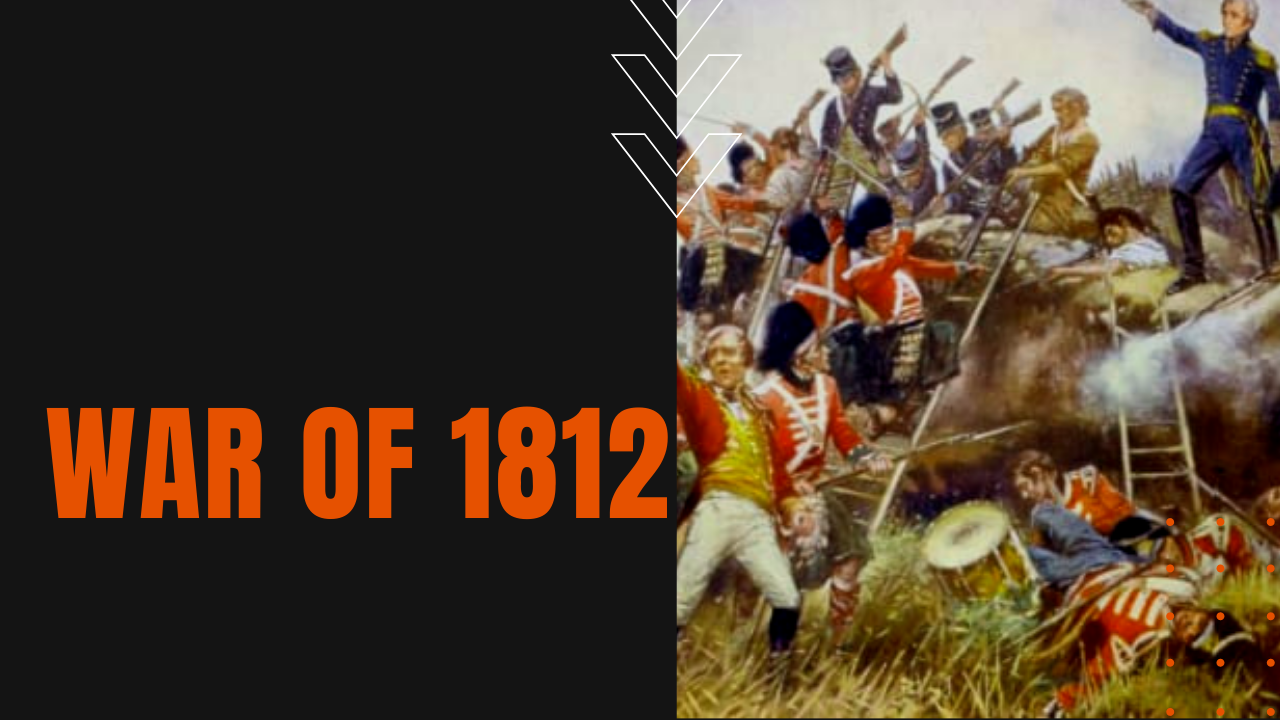War of 1812

At the outset of the 19th century, Great Britain was locked in a long and bitter conflict with Napoleon Bonaparte’s France. In an attempt to cut off supplies from reaching the enemy, both sides attempted to block the United States from trading with the other.
Causes of the War of 1812
The Royal Navy also outraged Americans by its practice of impressment, or removing seamen from U.S. merchant ships and forcing them to serve on behalf of the British. After Napoleon hinted to the Americans that he would stop restrictions, President James Madison blocked all trade with Britain that November.
Meanwhile, new members of Congress elected that year–led by Henry Clay and John C. Calhoun–had begun to agitate for war, based on their indignation over British violations of maritime rights as well as Britain’s encouragement of Native American hostility against westward American expansion.
President James Madison Declares War on Great Britain
By late 1811 the so-called “War Hawks” in Congress kept the pressure on President Madison, who on June 18th, 1812, signed a declaration of war against Britain. In order to strike at Great Britain, American forces attacked Canada, which was then a British colony.
Battle outcomes remained mixed for American forces, until Napoleon’s defeat in April of 1814 allowed the British to focus their full military attention on the U.S. As large numbers of troops arrived, British forces raided the Chesapeake Bay, capturing Washington, D.C. on August 24th, 1814, burning down government buildings including the Capitol and the White House.
On September 11, 1814, at the Battle of Plattsburgh on Lake Champlain in New York, the American navy soundly defeated the British fleet. And on September 13, 1814, Baltimore’s Fort McHenry withstood 25 hours of bombardment by the British Navy.
The following morning, the fort’s soldiers hoisted an enormous American flag, a sight that inspired Francis Scott Key to write a poem that would later be set to music and become known as “The Star-Spangled Banner.” (Set to the tune of an old English drinking song, it would later be adopted as the U.S. national anthem.)
Treaty of Ghent
British forces subsequently left the Chesapeake Bay and began gathering their efforts for a campaign against New Orleans. After Britain’s failure to take Baltimore, war ended with the signing of the Treaty of Ghent on December 24, 1814, however, on January 8th, 1815, unaware that peace had been concluded, British forces mounted a major attack in the Battle of New Orleans, only to meet with defeat at the hands of future U.S. president Andrew Jackson’s army.
While the ratification of the Treaty of Ghent formerly ended the war on February 17th, 1815, many in the United States celebrated the War of 1812 as a “second war of independence,” beginning an era of partisan agreement and national pride.
Did you know? The War of 1812 produced a new generation of great American generals, including Andrew Jackson, Jacob Brown and Winfield Scott, and helped propel no fewer than four men to the presidency: Jackson, John Quincy Adams, James Monroe and William Henry Harrison.
